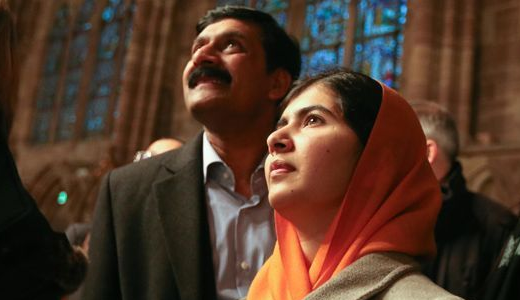I hate to admit this, but I was not a great student in high school. Not that I didn’t get good grades, but while my body was in class, my mind (and heart) was not. By my senior year, I wanted out so badly that I took a few remedial classes just for easy A’s. Today, I regret my callousness toward education. As a writer and speaker, I so wish I had studied harder, learned more, read more (especially the classics) and hung out with other students who enjoyed learning. (Sadly, my friends enjoyed beer, not Shakespeare or Tolstoy.)
But I married a woman who was my exact opposite when it came to education. She majored in elementary education, and she’s gone on to make a significant difference for thousands of students: teaching in public schools, developing a teacher’s “coaching” program and a “cottage school” at Colorado’s largest charter school, and then taking the principal reins for a startup Christian school six years ago. Oh, and did I mention she also homeschooled for four years? If I had to nail down to just one thing that she’s taught me about education, it’s that there should be a joy in learning. Believe me, that’s a concept that never occurred to me in high school!
I recently screened the new Davis Guggenheim documentary, He Called Me Malala [currently out in a limited theatrical release]. There’s a lot about this film that impressed and inspired me, and one of the chief components is that the young woman it highlights (18-year-old Malala Yousafzai) has had a joy for learning all of her life. Setting aside discussion of her Muslim faith, I find Malala a Mother-Teresa-esque campaigner for the rights of women everywhere to get an education. There’s something genuinely and incredibly virtuous about championing such a cause, a cause that I believe pleases the heart of our Creator.
The other day in my devotional time, I was re-reminded that Jesus read from the scroll of Isaiah when he was in the synagogue (Luke 4:17). In other words, at some point in his young life, Jesus benefited from someone teaching him letters and pronunciation. And as a carpenter, he was no doubt competent in math, too. Although he was God in the flesh, he still chose to go through the process of an earthly education. When I visited India three years ago, the missionaries and pastors I met told me that reaching a family for Christ often works best if they educate the children first.
As you probably know, Malala nearly lost her life over her belief that girls in her native Pakistan should receive an education similar to the boys. A member of the Taliban shot her in the head because she dared stand against their edict that only males should be educated. In 2014, Malala received the Nobel Peace Prize for her efforts to bring better education to the more than 60 million girls and women who lack it. In the film, Malala says: “It’s so hard to get things done in this world…but we must never give up.” Yes, it’s exhausting work. But work that He Called Me Malala underscores is a high and noble calling.






Recent Comments